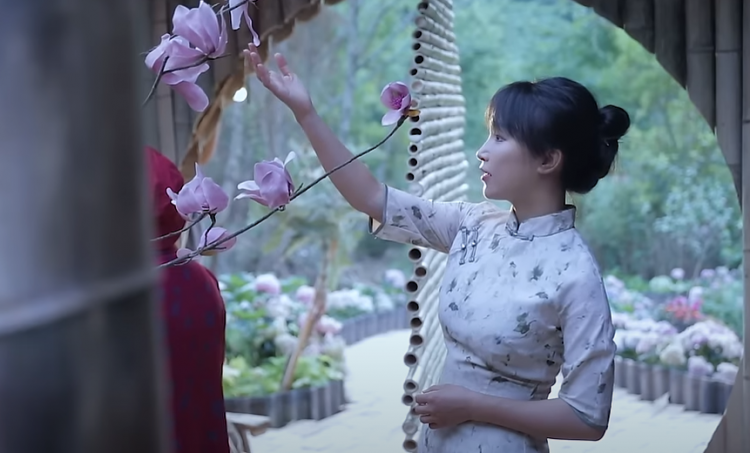Li Ziqi, China's renowned "Queen of Cottagecore," has returned to the online world after a three-year silence, reigniting global interest with a series of meticulously crafted videos showcasing traditional Chinese arts and a tranquil rural lifestyle. The 34-year-old content creator, celebrated for her soothing, highly aesthetic portrayals of countryside living, uploaded three new videos this week to her social media channels, captivating millions of viewers almost instantly. Within hours, her YouTube videos amassed nearly 15 million views.
Li, whose real name is Li Jiajia, became an international sensation starting in 2016, when she began sharing serene videos of her life in the Sichuan countryside. Her content focuses on artisanal skills, such as drying persimmons, weaving fabric, and crafting lacquerware, and provides an idealized portrayal of life away from modern technology. Her approach resonated with viewers, particularly during the pandemic, when lockdowns prompted a yearning for simplicity and escapism. In 2020, Li's popularity peaked, earning her the moniker "Quarantine Queen" from The New York Times.
Fans welcomed her return with unrestrained enthusiasm. One YouTube viewer wrote, "When the world needed her most, she returned." On Chinese platforms, her loyal followers expressed similar sentiments, with one popular comment on Weibo stating, "We need the slow-paced Li Ziqi in this age of information explosion."
The influencer's sudden disappearance in 2021 was linked to a legal dispute with her former marketing agency, Hangzhou Weinian. The conflict revolved around control over her personal brand and revenues from her merchandise. Li accused Weinian of withholding profits, leading to a complex legal battle that stretched over a year and involved multiple lawsuits. Ultimately, the Chinese government intervened, facilitating a settlement in December 2022. As part of the agreement, Li regained substantial control over her brand but Weinian retained rights to a food product line bearing her name.
During her absence from the online world, Li maintained a relatively low public profile, appearing primarily at government-sponsored events as an ambassador for Sichuan's farming culture. Her reemergence comes amid ongoing scrutiny of social media influencers by Chinese authorities, who have cracked down on content deemed inappropriate or politically sensitive. Li has largely managed to avoid such controversies, instead presenting a carefully curated image of traditional Chinese culture and rural life that aligns with the government's cultural and economic objectives.
Chinese state media has embraced Li's return, portraying it as a boon for the nation's cultural diplomacy. Xinhua, the state-run news agency, featured an interview with Li shortly after her videos were posted, emphasizing her commitment to promoting China's "Intangible Cultural Heritage." The People's Daily praised her lacquerware demonstration as a contribution to international cultural exchange, and Zhang Heqing, a cultural counselor at the Chinese Embassy in Pakistan, expressed admiration for her work on social media.
Li's latest videos continue to reflect her signature style. In one, she meticulously crafts a lacquer wardrobe, a process that blends traditional artistry with a calming visual narrative. "This lacquer video is four years late," she wrote in the video description, adding a heartfelt message: "I send this wish to everyone who sees the video, I miss you very much." In another video, she transforms a woodshed into a dreamy cloakroom nestled in the forest.
Despite the apparent simplicity of her videos, Li's work holds significant economic value. Her e-commerce endeavors, which include food products sold on platforms like Taobao, reportedly generated sales exceeding 1.6 billion yuan ($220 million) in 2020. The resolution of her dispute with Weinian has allowed her to regain creative control, but it remains to be seen how her commercial ventures will evolve.






